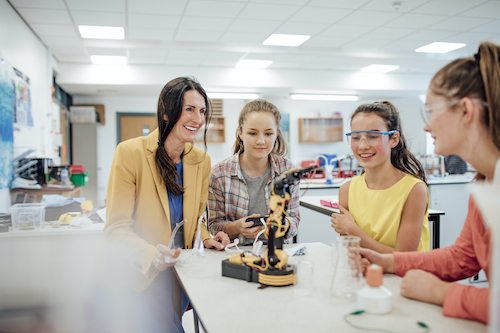Key points:
- AI can optimize the learning experience, the classroom is a delicate ecosystem and changes can have unintended effects
- AI is the future of work, and students must be prepared for it–and be familiar with it
- See related article: It’s important to teach generative AI–here’s why
Sometime late last year, AI reached an inflection point. Experts have been making grand predictions on its behalf for decades, but the moment OpenAI opened ChatGPT up to the public, the actual potential of this technology became clear on a mass level. Almost instantly, hundreds of articles began to appear on the transformative potential of AI for fields as diverse as medicine, law, and entertainment.
Of course, some fields are more amenable to technological revolutions than others. You can see why lawyers, for instance, might appreciate instantly generated summaries of past case law—but the implications of AI in the classroom might be trickier. Teachers are understandably wary; they’re interested in anything that might optimize the learning experience, but they also know that the classroom is a delicate ecosystem, and that any change can have unintended knock-on effects.
These concerns are understandable. Change is scary. In the particular case of AI, the potential positives are too significant to ignore. Let’s discuss the opportunities and challenges AI can bring to education.
Teachers are experiencing burnout at higher rates than ever
The consequences of the pandemic continue to be felt by teachers and students in classrooms. As countless experts have pointed out, the change the pandemic inflicted on children has led to deteriorating behavioral skills and social anxiety. Teachers were already experiencing burnout in great numbers before the pandemic, but those numbers increased even further in its aftermath, as teachers have found it challenging to help students who increasingly struggle in the classroom to stay engaged in their learning.
- Career and technical education needs a mental health revolution - June 16, 2023
- With Critical Race Theory spurring debate, is there hope for diversity in schools? - June 16, 2023
- Is AI the future of education? - June 15, 2023

